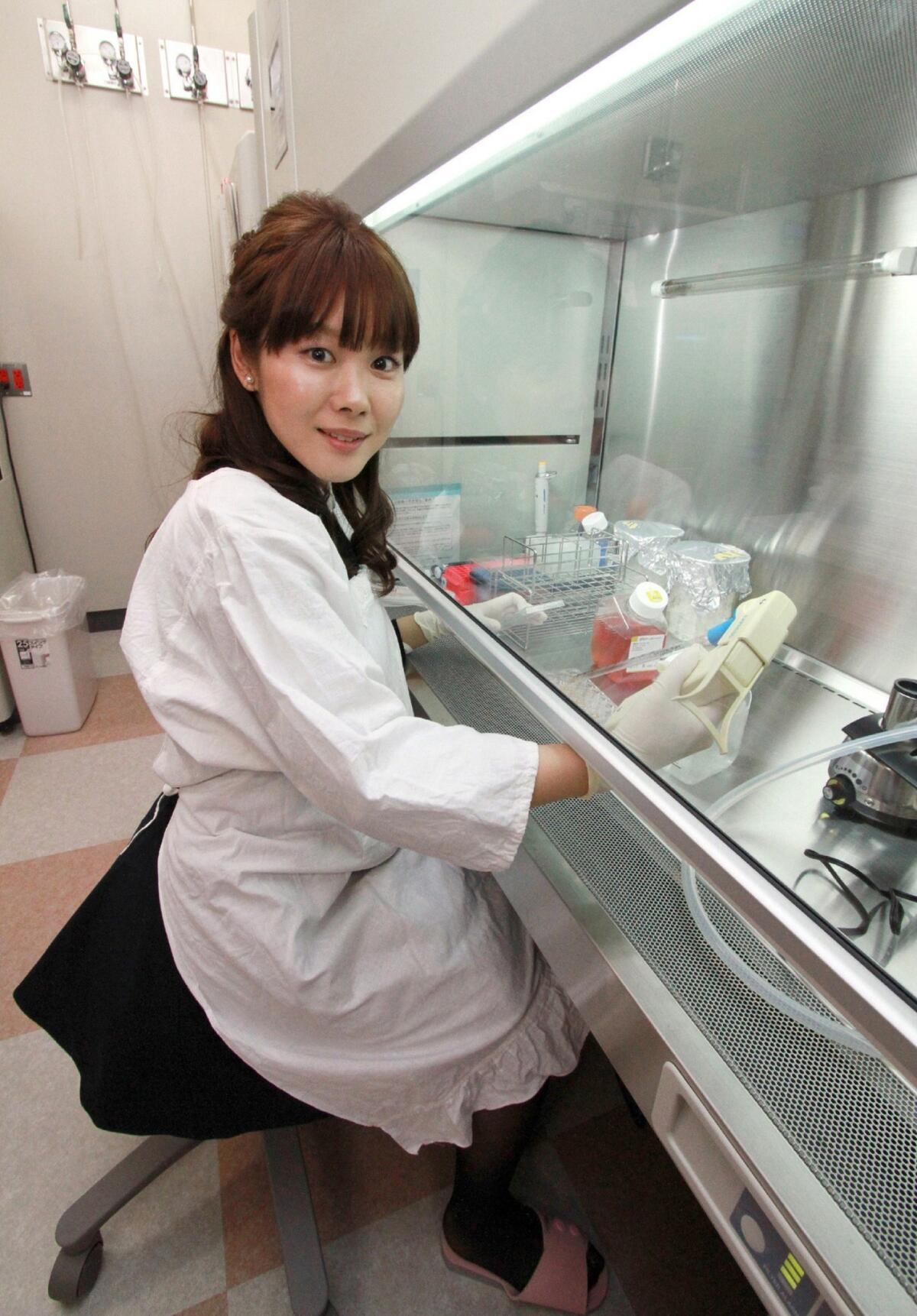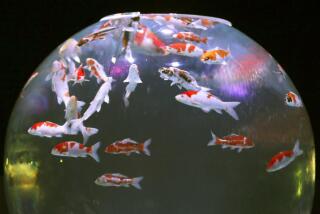Japan STAP stem cell researchers’ errors not intentional, RIKEN says

The Japanese research institution at the center of a growing controversy over a new type of stem cells said Friday that its investigation of four scientists has confirmed two instances of “inappropriate” behavior but that neither case was severe enough to be considered intentional misconduct or outright fabrication of data.
An investigative committee at RIKEN, which is funded primarily by the Japanese government, has been looking into charges that two high-profile papers published in January in the journal Nature included plagiarized material, duplicate photos and doctored figures. The papers described a new method for the speedy production of highly versatile stem cells, which the researchers dubbed STAP cells.
“The committee concluded that there had been inappropriate handling of data for two of the items under investigation, but the circumstances were not judged to constitute research misconduct,” according to RIKEN’s statement.
The RIKEN committee is focusing on four researchers:
Haruko Obokata, unit leader of the Laboratory for Cellular Reprogramming at the RIKEN Center for Developmental Biology and first author on both STAP cell studies.
Yoshiki Sasai, group director of the Laboratory for Organogenesis and Neurogenesis at the RIKEN center and coauthor of both studies.
Hitoshi Niwa, project leader of the Laboratory for Pluripotent Stem Cell Studies at RIKEN and coauthor of both papers.
Teruhiko Wakayama, former team leader of RIKEN’s Laboratory for Genomic Reprogramming and now a professor at the University of Yamanashi.
Wakayama was a senior author of one of the Nature studies and a coauthor on another. This week, he weighed in on the side of the critics and said the STAP studies should be withdrawn until the results can be confirmed by independent experts.
Obokata shot to fame in Japan after the STAP papers received worldwide interest. The methods in the papers apparently provided a means to simplify and accelerate the process of making pluripotent stem cells that would be genetically matched to patients. In theory, such cells could be used to grow replacement tissues for patients with a range of diseases and chronic conditions, including diabetes, muscular dystrophy and spinal cord injuries.
Authors said they fundamentally transformed the blood cells of newborn mice by soaking them in a mildly acidic solution for 30 minutes. This near-fatal shock, they said, caused the cells to become pluripotent. They called them “stimulus-triggered acquisition of pluripotency,” or STAP, cells.
The claims met with awe and skepticism from fellow researchers. Very quickly however, some critics began to raise issues about images that appeared in the published work. They also questioned a section of text in the methods section of one paper, which appeared to have been taken from another source.
RIKEN began its investigation on Feb. 18. So far, it has answered two of its six questions.
The first resolved issue involves the “unnatural appearance of colored cell parts shown by arrows” in one of the papers. The investigative committee determined that “the process of preparing these images did not constitute fabrication within the context of research misconduct.”
The second issue involved concerns that two pictures of mouse placentas that were glowing green (to show how the STAP cells had been incorporated throughout) bore a “strong resemblance” to each other. The committee determined that the pictures were in fact duplicates but accepted the researchers’ explanation that they intended to delete one of the pictures and simply forgot. “It was therefore concluded that there was no malice intended, and this was not judged as a case of research misconduct,” according to RIKEN.
Four more issues remain to be resolved:
1. A figure in one of the papers appears to have been doctored. The figure shows key genetic changes in the reprogrammed cells.
2. A sizable portion of the same paper seems to have been copied from a previously published study. The portion in question describes the researchers’ methods for examining chromosomes in the cells.
3. The methods described in the section that appears to have been plagiarized may not have been followed in the actual experiments.
4. A picture of a mouse that was purportedly grown with STAP cells looks like a picture that was used in Obokata’s doctoral thesis, which was published in 2011.
“The investigation is still in progress and there remain allegations and concerns that must be thoroughly investigated,” the committee said in its statement. “RIKEN takes this matter very seriously and considers it essential that the facts be ascertained. As soon as the committee has reached its conclusions, a final report will be promptly issued.”
RIKEN President Ryoji Noyori said Friday that he was prepared to punish any researchers who are found to have engaged in deliberate misconduct.
“Should the investigative committee conclude that there was research misconduct, we will take strict disciplinary action as stipulated by our own regulations,” he said.
Noyori also expressed “my deepest regrets that articles published in Nature by RIKEN scientists are bringing into question the credibility of the scientific community.”
There was no immediate reaction from Obokata, who has kept a low profile in recent weeks.
Dr. Charles Vacanti, a study co-author at the Harvard-affiliated Brigham and Women’s Hospital in Boston, has defended the STAP work, insisting there is no reason to retract it.
“I firmly believe that the questions and concerns raised about our STAP cell paper published in Nature do not affect our findings or conclusions,” Vacanti said in a prepared statement.








